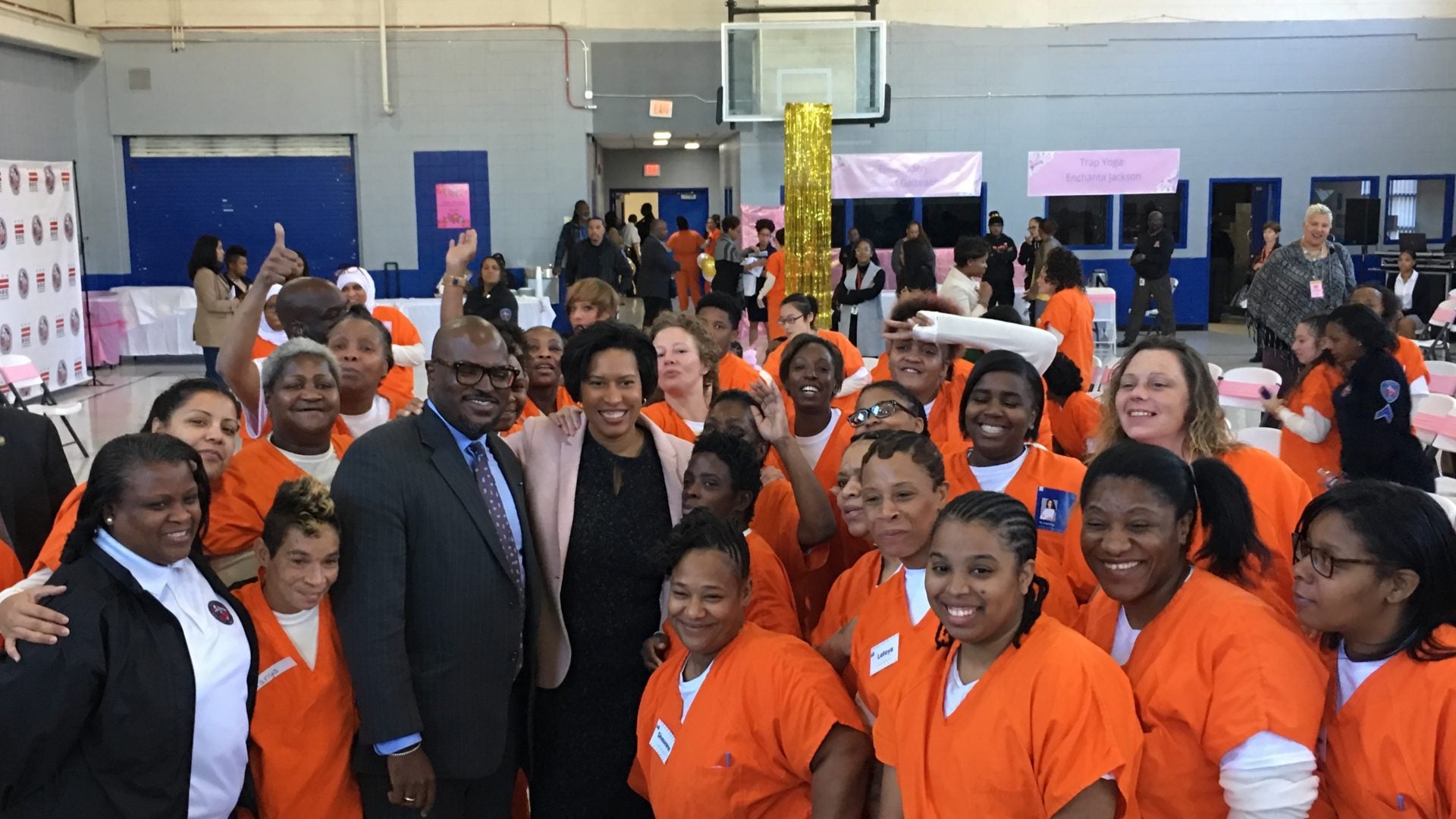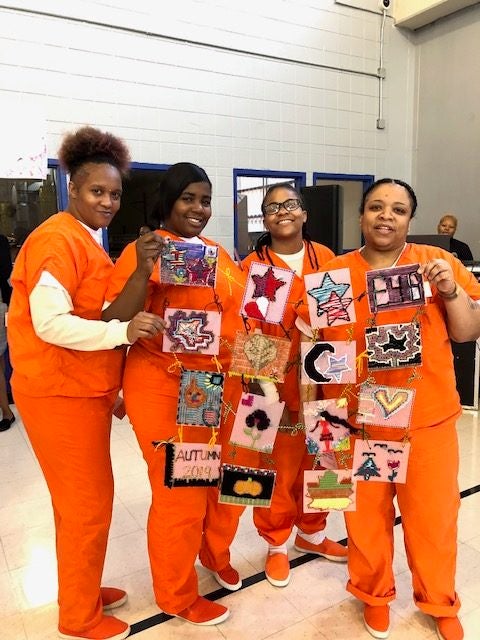
Criminal justice reform has been at the forefront of many political conversations over the past few years, both nationally and locally.
The 2020 Democratic presidential candidates have released their own vision for the future of the justice system, and Rep. Ayanna Pressley (D-Mass.) recently unveiled a bold resolution on the matter.
Locally, in DC, the Department of Corrections is taking steps not only to address criminal justice reform but to also listen to those who are impacted, first-hand by the system, specifically incarcerated women.
Earlier this month, the DCDOC hosted a day-long women’s empowerment conference, aptly titled “You Are More Than Enough,” one of the first events held by the agency that was fully focused on women.
“I’m looking to build my networking skills. I’m looking to make the transition from being considered an incarcerated person to a person that’s contributing positively to society,” Saulina Eady, one of the women participating in the event at the DC Correctional Treatment Facility told ESSENCE. “There are so many wonderful organizations here and so much feedback that’s positive and uplifting and empowering. I plan to use those tools to change my life.”
“I think this whole summit today is going to allow me to be a more effective leader. I founded a group called ‘Virtuously Reformed Queen.’ And the different sessions that we’re going to be going through today, it’s going to allow me to be able to go back and…take a sister back with me,” Jazmin Wilburn, 29, another attendee, added.
The idea for the project came about after surveying the women in the hope of figuring out how to engage their interest. From there, DCDOC Director Quincy Booth and the deputies followed up and had a three-hour conversation with the women about what they wanted and needed in terms of programming and other topics that they wanted to learn about.

Booth acknowledged that in general, there can be a cookie-cutter approach to building programs and events for incarcerated women, usually just going off of whatever is created for the men. This time, however, the team sought to do something different.
“What we had to make different for the women was really just hearing their voice, respecting their voice, and incorporating whatever it is that they said into the equation,” Booth said.
The result was an all-out, all-day event, where the women were able to hear from DC Mayor Muriel Bowser and ask her questions about the avenues available to them upon their release. They also heard from CNN commentator Angela Rye, and other notable speakers.
“I can hear directly about what their concerns are, what’s on their mind, how we can make their experience here the most rehabilitative, and most effective for their return,” Mayor Bowser told ESSENCE. “And you can just also see that people are people, and they make mistakes and they need a chance back home.”
The conference also featured a plethora of workshops that the women could take part in, including group discussions on “Unlocking the Keys to Inner Confidence” and “Managing Your Money.” More interactive activities included trap yoga, double dutch, and embroidery.

“I’m happy about what I’ve seen thus far. I’m happier about what’s going to come in the future,” the director said. “Hopefully, it’s a level of community that they can continue to grow and continue to participate [in where ultimately they] do not come back into this space. But I am open to continuing having this conversation, whether we call it a conference, whether we call it a large empowerment session.”
Bowser echoed Booth’s sentiments, noting that the focus, and what has been demonstrated by the DC jail is that more services can be provided. The mayor referenced, as an example, the recently launched READY center, where returning citizens can get help and services (such as housing assistance), as they make their way back into society.
This will be especially helpful to the women housed at the Correctional Treatment Facility. Approximately, 14 of the 70 ladies present at the conference are scheduled to be released within the next two months. Most of the women will be released within a year. And the vast majority do not stay longer than three months to begin with.
“This was definitely a great opportunity to talk to so many professional people in so many different fields,” Eady, 37, said. “It was just unforgettable. I know that I will have better tools to start my life when I leave here, and that’s what’s most important to me.”